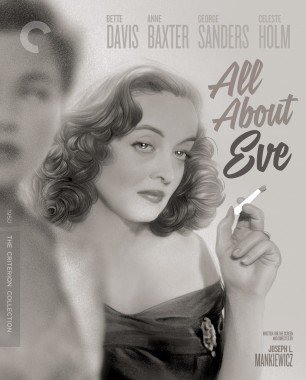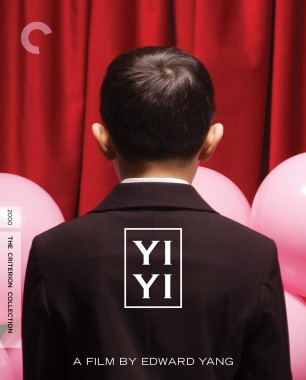
Ray Yeung’s Top10
Ray Yeung is a Hong Kong filmmaker who has made four feature films. His latest work, All Shall Be Well, premiered at the 2024 Berlinale International Film Festival, where it won the prestigious Teddy Award and secured third place for the Panorama Audience Award. His previous feature Suk Suk (also known as Twilight’s Kiss) premiered at the Busan International Film Festival in 2019 and was showcased again at Berlinale in 2020. Both films were distributed in the U.S. by Strand Releasing. In 2021, Ray was honored as the Artist of the Year (Film) by the Hong Kong Arts Development Council. He has also served as the chairman of the Hong Kong Lesbian and Gay Film Festival since 2000, reflecting his commitment to promoting LGBTQ+ cinema.
-
1
Wong Kar Wai
Happy Together
Wong Kar Wai’s Happy Together tells the story of two gay men, Lai Yiu-Fai (Tony Leung Chiu Wai) and Ho Po-Wing (Leslie Cheung Kwok Wing), who leave Hong Kong for Argentina in hopes of rekindling their troubled relationship. The film centers on the emotional turbulence of two people deeply in love but unable to live happily together.
One of the film’s most captivating moments occurs when Ho and Lai share a taxi ride and, in slow motion, Ho gently rests his head on Lai’s shoulder. This tender gesture conveys the illusory nature of their love—a brief moment of harmony set against the quiet backdrop of a nighttime drive. The scene’s slow pace and cross-fading images evoke the transience of their connection, underscoring their fleeting happiness.
Prior to Happy Together, Hong Kong cinema often portrayed gay men through negative stereotypes. Wong Kar Wai broke new ground by showing that gay love stories could be both passionate and poetic, presenting LGBTQ+ themes with sensitivity and beauty rarely seen in queer filmmaking of the period.
-
2
Louis Malle
Au revoir les enfants
Although Au revoir les enfants is set in France during World War II, many moments feel relatable to me. Having attended boarding school in England, I experienced similar scenarios to those in the film—cruelty on the playground, the intense competition to be the alpha male, and the unspoken rule against showing emotions or weaknesses. In such a cold and hostile culture, finding a best friend becomes both a necessity and a rare comfort.
This film, loosely based on director Louis Malle’s own experiences, is a farewell to childhood, innocence, and his memories of war. Told through a harsh lens, it’s a coming-of-age story about living in a world that forces us to accept our helplessness, confront the ambiguities of right and wrong, and suppress what feels good and genuine in order to step into adult life.
-
3 (tie)
-
Yasujiro Ozu
Tokyo Story
Late Spring and Tokyo Story are two films by Yasujiro Ozu that I keep going back to when I’m feeling down or low. Both stories are undeniably sad, yet they carry a comforting warmth. Maybe what moves me is Chishu Ryu’s portrayal of the typical Asian father figure—stern and distant on the outside, yet hiding a quiet tenderness he doesn’t know how to show. Or maybe it’s Ozu’s storytelling, full of unspoken regrets and despair but softened by gentleness, sweetness, and even moments of humor.
Ozu’s exploration of family resonates deeply with me. His characters often repress their own feelings to maintain social harmony, something I relate to given how essential “saving face” is in Chinese culture. In Late Spring, the father (Ryu) and daughter (Setsuko Hara) sacrifice their own happiness for each other’s sake and to preserve societal expectations. This theme of sacrifice and family values is something I try to explore and capture in my own work, which is inspired by Ozu’s delicate and heartfelt approach.
-
4
Krzysztof Kieślowski
Three Colors: Blue
I am a big fan of Krzysztof Kieślowski’s work, particularly Dekalog, A Short Film About Love, and Three Colors: Blue, which I find the most haunting and absorbing. In this film, production design, cinematography, music, sound, and performance all come together to create a visual, auditory, and emotional journey through grief, betrayal, regret, and renewal.
The film is filled with unforgettable moments: the scene in which Julie, played by the charismatic Juliette Binoche, closes her eyes in a park, savoring a moment of sunshine; the close-up of a sugar cube slowly turning brown as it absorbs coffee; the image of Julie gazing at the dangling blue crystal lights in her new apartment, a powerful symbol of her new beginning. Kieślowski brilliantly uses ordinary events—such as Julie’s discovery of a mouse giving birth in her home—to mirror the inner turmoil and anxieties of his protagonist. The mouse forces her to decide how to handle it, and the scene is laced with irony, as it contrasts with her own trauma of having just lost a child.
-
5
Tomás Gutiérrez Alea
Memories of Underdevelopment
I was completely captivated by this film by Tomás Gutiérrez Alea when I first watched it during my first year at Columbia University. The film uses a semidocumentary style, shot in black and white with a handheld camera, giving it the look of news footage. It even intercuts real news clips, creating a serious, urgent political atmosphere, as if what we’re seeing is unfolding in real time.
This intensity contrasts sharply with the protagonist Sergio’s introspective, self-pitying voice-over, immediately establishing a sense of disharmony between him and his surroundings. This contrast serves as a powerful commentary on the self-absorbed intellectual middle class and its inability to engage meaningfully with Cuba’s revolution.
-
6
Joseph L. Mankiewicz
All About Eve
One rainy Sunday afternoon, I was flipping through TV channels when I came across Bette Davis in All About Eve. Mesmerized, I couldn’t look away as she commanded each scene, delivering sharp, biting lines while sparring with friends, foes, and her lover. In that moment, I understood what star quality truly meant. Many iconic actresses have that magnetic quality, particularly those whom gay men are often drawn to.
All About Eve, directed and written by Joseph L. Mankiewicz, is a brilliant film that captures the height of Hollywood’s golden age, with a legendary actress playing a movie star. Yet, beneath its glamorous surface, the film delves into the complex struggles and ambitions of women, themes that still resonate today.
-
7
Vittorio De Sica
Umberto D.
Vittorio De Sica’s Umberto D. is one of my favorite works of neorealism, and it moves me to tears every time I watch it. Its magic lies in its simplicity. Told in a straightforward, linear fashion, the story follows an elderly pensioner, portrayed by Carlo Battisti in his debut performance, who struggles to support himself financially—so much so that he can barely care for his beloved dog. Throughout the film, the protagonist fights to preserve his dignity, yet the harsh realities of life continually beat him down. Umberto D. lays bare a world where people become disposable once they’re no longer seen as productive members of society. It’s heartbreaking to see how little has changed since then.
-
8
Miloš Forman
The Firemen’s Ball
I rarely laugh out loud at comedies, but Miloš Forman’s The Fireman’s Ball had me doing so repeatedly. The best comedies are those that highlight the absurdity of situations and the irony in helpless predicaments, and The Fireman’s Ball is no exception. Set in Czechoslovakia in 1968, the film follows a group of firemen as they plan a tribute party for their former chief. But everything that could go wrong does, highlighting both the inefficiency of the Soviet bureaucratic system while humorously exposing selfish, arrogant, and greedy human behavior.
Although set in a different era and country, the satire resonates universally. The film’s semidocumentary style adds a sense of realism that makes the humor feel even more biting and, in many ways, paved the way for the reality television format that became popular in later decades.
-
9
Mikio Naruse
When a Woman Ascends the Stairs
Mikio Naruse’s When a Woman Ascends the Stairs portrays an aging bar owner, Keiko, who faces relentless setbacks as she struggles to survive but is let down by one broken promise after another. The film shows the challenges and injustices that society imposes on women, especially older women who confront institutional misogyny at every turn. This is powerfully symbolized by the recurring shot of Keiko, played by the formidable Hideko Takamine, climbing the stairs to her bar. These stairs lead to her work, her livelihood, and her dreams, but they also represent the confining roles she must play to serve, charm, and seduce in a male-dominated society.
-
10
Edward Yang
Yi Yi
The infatuation of a stranger, the longing of first love, the ache for a childhood sweetheart, the regret of lost youth, and the grief of losing a loved one—Edward Yang’s Yi Yi masterfully captures the anguish, beauty, and inevitability of life’s cycles. While filled with melancholy, the film is also deeply optimistic, celebrating life and all its pleasures and sorrows. In one poignant line, a character reflects, “Every day in life is a first time. Every morning is new. We never live the same day twice.” Although Yang left us far too soon, his work continues to live on in our hearts and minds.















